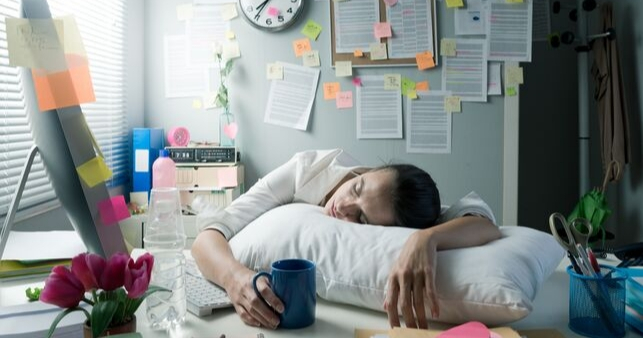
Every All Blacks fan will be keenly aware of World Rugby’s campaign to improve player’s workplace health and safety.
This campaign hasn’t been a roaring success. So far, every team has got away with various knocks to the heads – except Australia and minnows like Samoa and Uruguay.
This shows how hard it is to get workplace health and safety right, even if you are the organiser of one of the world’s biggest sporting events.
With New Zealand set to play a few games late at night on Sundays, businesses may be beginning to consider how to manage a workforce that’s sleepier than usual.
Employsure’s Senior Workplace Health and Safety Consultant Stephen Wakem is wary about the impact that a lack of sleep can have on a worker.
“A WorkSafe report reported that people who are tired and fatigued are more likely to have an accident.
“Fatigue doesn’t just impact the physical and mental health of individuals, it also impacts the health and safety of everyone else in the workplace. This can increase the risk of injuries, incidents, and accidents happening at work.
“Depending on the particular job and responsibilities of the employee, fatigue can also put the public at risk. Take for example, the high risk associated with public transport operators, transport, healthcare, childcare, security, or building and construction work.”
On Thursday 2 October, the All Blacks kicked-off against Canada at 11:15pm which meant the game wrapped up around 1.30am.
“The National Sleep Foundation recommends between 7-9 hours of sleep per night,” Wakem says, “so if they’re going to bed at 2 and have to be up at work at 9am, then they’re going to be very sleep deprived.”
With Kieran Read’s charges likely to charge through the quarter-finals and semi-finals, Kiwi businesses can expect more tired staff.
“There are some quarter-final and semi-final games scheduled for Sunday night, at 11:15pm, and even later for those relying on delayed TVNZ coverage” Wakem says.
“Looking at the draw, it’s unlikely that the All Blacks will be playing on Sundays but playing on Saturdays.
“However, given New Zealand’s love for rugby, our diverse population, and the once-every-four-years nature of the Rugby World Cup, I’d say businesses could expect a lot of staff will be watching those games to end.”
Here are Stephen Wakem’s Four Top Tips for Managing Staff Fatigue During the Rugby World Cup
1. Communicate the effects of fatigue at work
Simply tell staff that you understand that fatigue may be a factor after rugby games during the World Cup. Relay your concerns – say to your staff that there’s a higher chance of accidents for tired workers. It can be a simple, friendly email to all staff.
2. Allow more breaks
If many employees are going to watch the game anyway, and come into work lacking sleep, you could consider making accommodations for them.
With regards to physical labour, perhaps offer the workers a bit more leniency with regards to breaks.
3. Change shifts and workloads
Another thing to keep in mind is the workload or rostered shifts you give to workers on the day after. Consider offering staff a later starting time for the day, with the proviso they work a bit later too. Work-related travelling can also compound an employee’s fatigue.4.
4. Workers love perks
Many surveys have confirmed that perks in the workplace have a big factor in their workplace happiness. While these suggestions may seem accommodating to some, they can have the added benefit to employers of increasing employee satisfaction and happiness in your business. Happier employees are better workers.

Get Workplace Advice Now
Call Our Team of Expert Advisers Who Will Help You with Your Workplace Questions.
